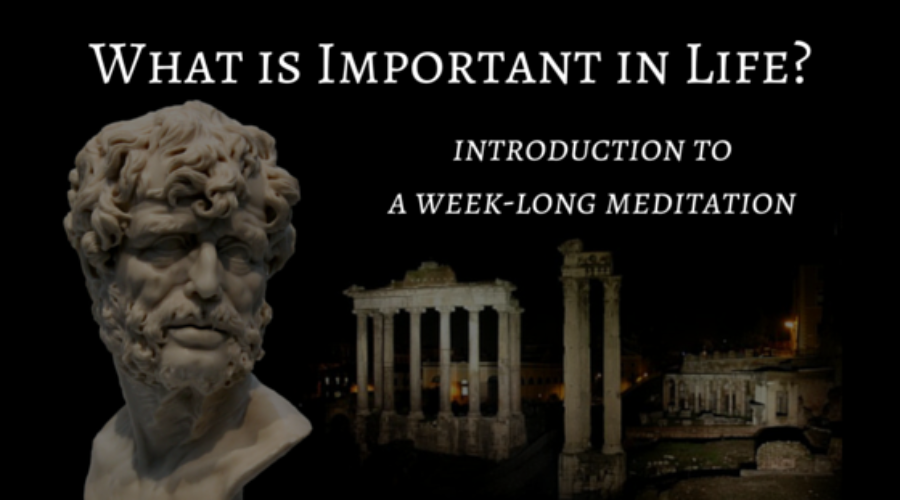What is most important in human life? That is a perennial question which all of us ask ourselves, in one form or another, at some point in our lives. Unfortunately, many of us only confront that question either late in life or when tragic circumstances force the question upon us. Often, it is only after the raging fires of our youthful passions and career ambitions have exhausted our enthusiasm that we stop long enough to contemplate what is truly important in life. There, amidst the faintly glowing embers of a long life approaching its end, or within the smoking and smoldering embers of a tragic event, we are more likely to listen to our inner sage as it admonishes us to consider what is really important in life before it is too late. Seneca, the wealthy and once powerful Roman Senator asked that question in the preface to Book 3 of his Natural Questions. Seneca was looking back on his life from old age when he wrote Natural Questions. From that perspective, Seneca provides us with the motive for his repeated query, “What is most important in life?”
Old age is at my back and accuses me of having used up my years in fruitless pursuits. (NQ III, praef. 2)
Many of us, maybe most, feel the weight of that same accusation at some point in our life. We ask ourselves, what am I doing with my life? The question may be prompted by external events like divorce, a disabling accident, the death of a loved one, a brush with death, a terminal medical diagnosis, the birth of a child, etc. Likewise, the question may arise during meditation or a quiet moment of self-reflection. There are many occasions that might prompt the question. Nevertheless, it is fair to say that few of us ask it often enough or reflect on it deeply enough to effect lasting change in our lives.
Fortunately, as Seneca points out, it is never too late to begin anew. No matter what stage of life we are in, we can “press on all the more” and give “hard work” the opportunity to “repair the losses of a misspent life.” How? By giving our mind—our rational faculty—time to itself for “contemplation of itself.” Here, Seneca echoes Epictetus’ confidence in our rational faculty’s self-judging and self-healing capabilities (Discourses 1.1). Nonetheless, we must create the time and space for our mind to work on itself. According to Seneca, if we create the time in our busy lives to allow our rational faculty to work, it can “recover by using its present life with care.” We create the time and space for the recovery process through the practice of attention (prosoche), which will focus our rational faculty on our present judgments, present desires, and present actions. Vigilant, moment-by-moment attention to our thoughts, desires, and aversions is the starting point of the inner work of the Stoic. Once we are paying attention, we can deploy the three Stoic disciplines to help us “transition from remorse to honorable action.” (NQ III, praef. 2-3).
A Week-Long Meditation
Seneca asks, “What is most important in life?” seven times and provides seven thought-provoking insights in Natural Questions, Book 3, praef. 10-18. This week-long meditation draws from Seneca’s responses to challenge and inspire practicing Stoics. Each daily meditation is short enough to be read quickly during a morning meditation and will give the reader something to consider throughout the day. The goal of this week-long meditation is twofold. First, I trust that Seneca’s responses to the question “What is important in life?” will provide some insight into this question from the perspective of a Stoic. Second, my wish is that Seneca’s responses will provoke some deep soul-searching on the part of readers and will motivate them to ask and answer this potentially life-changing question for themselves.
Day 1 – The Inner Work of Stoicism
Day 2 – The Cosmic Viewpoint
Day 3 – Love of Fate (amor fati)
Day 4 – A Courageous Mind for Courageous Action
Day 5 – A Contented Mind and Pure Hands
Day 6 – The Good Fight Against Fortuna
Day 7 – Prepare for Death to Discover Freedom



